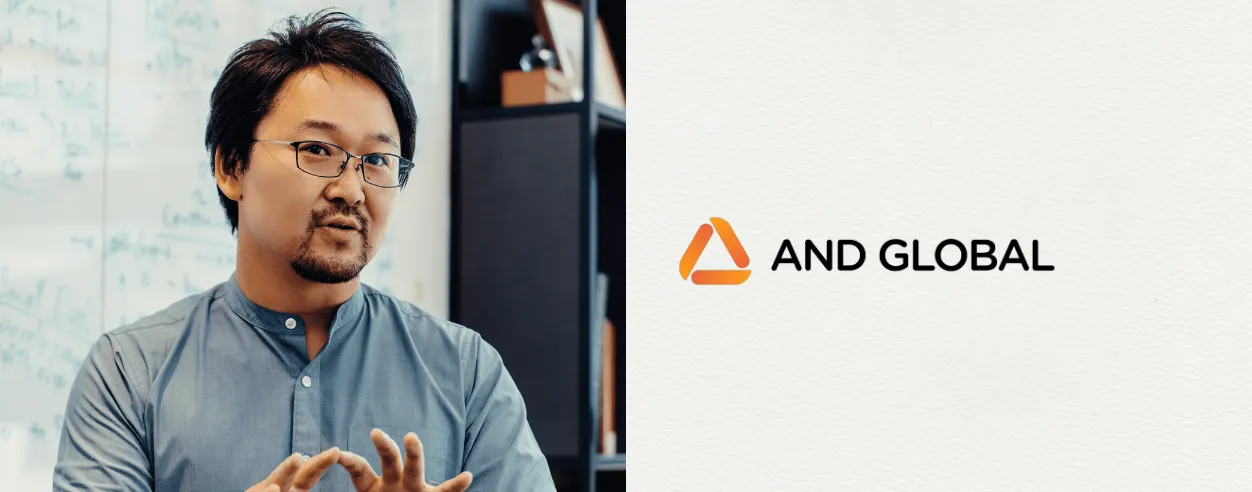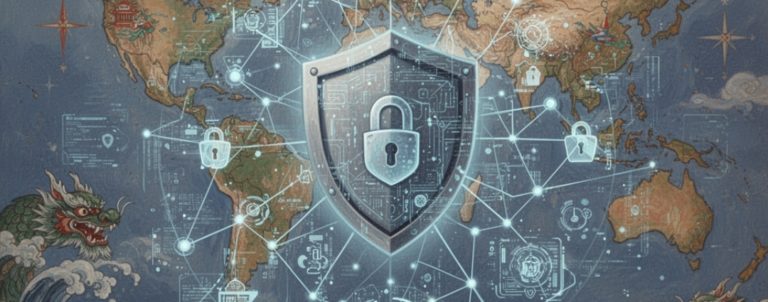With the ascent of digital banking, reaching the underbanked is amongst the first challenges that most fintech and financial institutions encounter. This growing challenge of achieving financial inclusion encompasses a significant portion of the region’s population, underscoring the necessity for strengthening efforts to provide financial services to individuals excluded from traditional banking.
In UpTech Media’s third exclusive interview, we sat down with Khos-Erdene Baatarkhuu, chief executive officer at AND Global, to tackle the challenges that hinder financial inclusion in the Southeast Asian region. These challenges include limited access to formal financial services, a reliance on cash transactions, and insufficient digital infrastructure, all of which create major barriers.
He further highlighted the opportunities for digital banking to flourish, potentially aiding the unbanked and underbanked in overcoming their financial dilemmas.
Limited access, inclusion at stake
For Khos-Erdene, among the challenges that the region is confronted with are credit scoring and the unbanked. With traditional credit bureaus relying only on formal financial data, he noted that this excludes the underbanked, who lack credit history.
This situation, according to him, often affects freelance workers or individuals in the informal sector with non-traditional income streams, as their creditworthiness is difficult to assess without a credit history.
Specifically, he highlighted the banking state of the Philippines, noting the 34.3 million individuals remaining unbanked in 2021 based on the Banko Sentral ng Pilipinas.
Although the data implies negative results, Khos-Erdene further emphasised that this does not necessarily indicate an inability or unwillingness to repay loans but rather reflects a lack of formal credit data.
On the other hand, he also underscored the importance of alternative data and credit scoring solutions, where advanced credit scoring models analysing borrowers’, digital activities are crucial for accurate assessment.
In particular, he cited AI-powered credit scoring solutions that can leverage alternative data sources alongside traditional ones. These examples include (1) formal data or simply income sources (bank statements, salary histories), employment verification, credit bureau reports, etc.
Meanwhile, the other revolves around (2) alternative data, which pertains to telco scores, psychometric assessments, loan questionnaires, repayment data, device and app usage data, and location information.
He further notes, “While Southeast Asia is still adopting alternative data scoring, the future holds promise.”
Apart from this, he also cited cybersecurity and data privacy as challenges contributing to limited financial access.
“Data privacy and security are paramount in digital lending, where personal and financial information is involved. Weak digital literacy among the underbanked makes them more susceptible to fraud and scams,” said Khos-Erdene.
“This creates a vicious cycle: limited access to financial services hinders credit history building, which in turn restricts access to even more financial products,” he added.
Interestingly, he suggested the potential of blockchain technology as a solution to minimising the risks associated with data breaches and transparency in lending processes.
Khos-Erdene, in particular, notes, “Blockchain technology offers a secure and decentralised way to store and share data, reducing the risk of data breaches and ensuring transparency in lending processes. Cryptocurrency adoption is also expected to grow in Southeast Asia, driven by increasing awareness of its potential benefits.”
He further specified an example that could be attributed to the collaboration between LendMN NBFI and Denode, a blockchain-based tokenisation platform.
According to him, the said partnership signifies a strategic shift towards leveraging blockchain’s fundamental qualities, bringing together transparency in lending processes and the protection of investor funds from cybersecurity threats.
Meeting the challenges of financial exclusion
In responding to these challenges, Khos Erdene pointed out four important factors that contribute to financial exclusion. Among these factors are lack of access to formal financial services, reliance on cash transactions, and limited digital infrastructure, which restrict individuals’ access to digital lending and other fintech solutions.
According to him, stringent and lengthy regulatory processes can also increase operational costs for startups, hindering their ability to offer affordable and accessible services to the underbanked population.
“AND Global tackles financial exclusion through a multi-pronged approach. Our most effective strategies involve collaborating with local governments and financial institutions to develop tailored solutions that address the specific needs of underserved communities.”
“By focusing on accessibility, affordability, and education, we aim to empower individuals to fully participate in the financial ecosystem,” he further explained.
Furthermore, he also emphasised the significance of digital banking literacy as a gateway to ensuring improved access to banking services. He additionally cited three ways in which fintech and financial institutions can assist in this endeavour.
These solutions include (1) gamified learning apps, which, according to Khos-Erdene, can make waves in financial education and accessibility through interactive and user-friendly apps.
The second (2), on the other hand, pertains to providing educational materials and customer support in local languages, which in turn removes language barriers. And lastly, (3) organising financial literacy workshops in communities that equip individuals with practical skills for managing finances and using digital banking tools.
Empowering the underbanked through financial inclusion
When discussing significant trends in the current landscape, Khos-Erdene highlighted the advancements that promote financial inclusion for the underbanked, specifically the increasing popularity of mobile banking, blockchain, artificial intelligence, and machine learning, as the fundamental keys to improving the present-day state of banking services in the region.
“These advancements can promote financial inclusion by making financial services more accessible, reducing transaction costs, and providing more personalised and efficient services,” he said.
For him, the growth of the gig economy and e-commerce platforms provides fresh avenues for the underbanked to access financial services and engage in the digital economy, which opportunities can be enumerated into three categories:
First, open banking APIs that allow secure data sharing between financial institutions and fintech companies. This fosters collaboration and the development of inclusive financial products tailored to specific needs.
Second, blockchain technology enables secure and transparent micro-transactions, empowering the underbanked to participate in the digital economy.
Finally, biometric authentication, such as fingerprint scans, provides secure and convenient access to financial services for those without traditional identification documents.
“By addressing these challenges and leveraging these trends, Southeast Asia’s fintech sector can create a more inclusive financial landscape, empowering the underbanked to fully participate in the digital economy,” he concluded.








